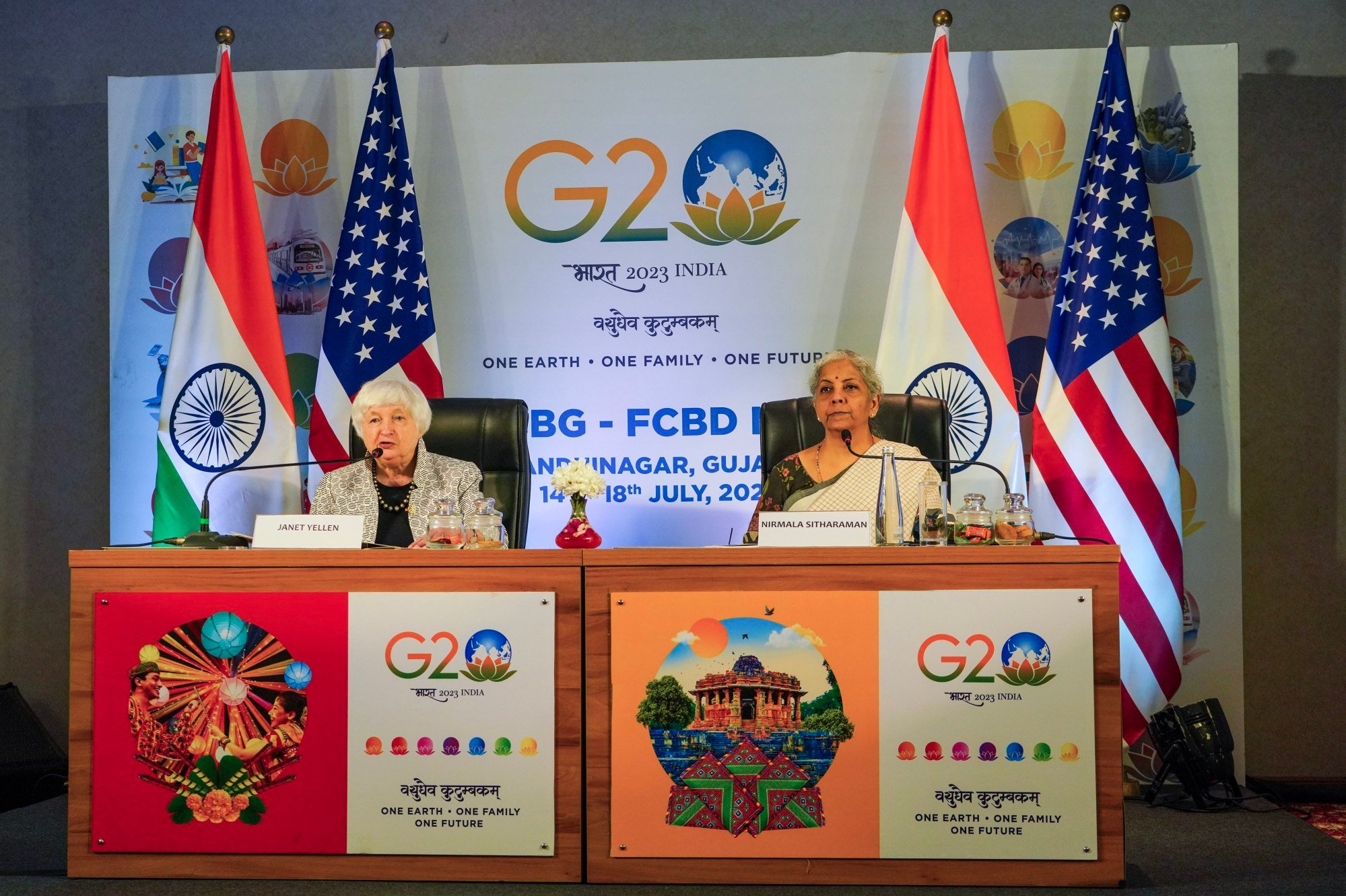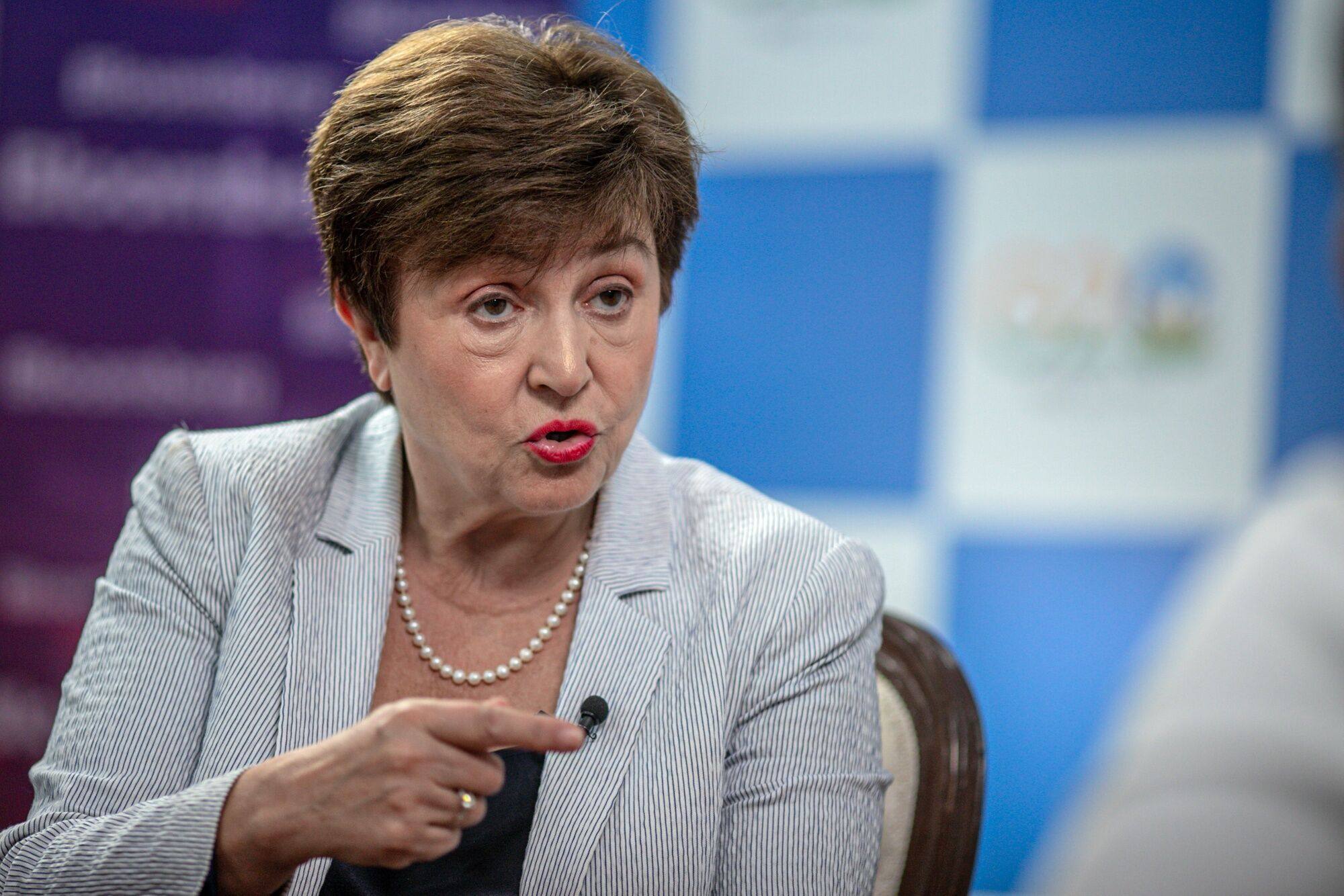
G20 economies must heed the warning that inflation has not been tamed, but will they?
- At their meeting this week, G20 finance ministers are warned against any premature celebration. Despite data that showed price rises are moderating, the battle is not yet over
Finance ministers from the Group of 20 (G20) nations were confronted with this and other stark economic realities during a presentation by International Monetary Fund (IMF) managing director Kristalina Georgieva at their meeting in Gandhinagar, India, earlier this week.
The fact the meeting ended without consensus on key issues was symptomatic of the divided state of the global community. “We still don’t have a common language on the Russia-Ukraine war,” Indian Finance Minister Nirmala Sitharaman said as the meeting ended without a joint statement.
Not all of the G20 finance ministers were there to hear her words. Ministers from six countries – Argentina, Brazil, France, Mexico, Germany and Britain – did not attend the meeting, with some sending representatives. The absent countries cited a need to deal with other, often domestic priorities, suggesting an unwillingness to confront the seriousness of the problems on the G20’s agenda.

During the finance ministers’ meeting in Gandhinagar, Georgieva presented IMF data that ran counter to perceived trends in inflation among advanced economies and those in developing or emerging countries. Among the advanced economies it listed, Spain, South Korea, Japan, Canada, the United States, Australia, France, the euro zone, Germany, Italy and the United Kingdom all had year-on-year inflation that was significantly above their target level or range.
3 takeaways as China’s deflation risk rose in June

This is occurring against a background of record levels of debt at government, corporate and household levels. Even if interest rates in these economies slow or even halt their rise, they are not going to fall any time soon, which augurs financial stress and distress.
As Georgieva said in her remarks to the G20 finance ministers’ meeting, “headline inflation is still too high and core inflation remains sticky despite the significant monetary policy tightening. … Inflation could remain higher for longer, requiring even more monetary policy tightening”.
Or as analyst Enzio von Pfeil commented in his Money Talk podcast on July 20, “the Fed’s policy dilemma of abating demand pull inflation clashing with stubborn wage-push inflation suggests rate rises of another 25 to 50 basis points this year”. He added, “blue-eyed optimists, beware!”
Anthony Rowley is a veteran journalist specialising in Asian economic and financial affairs

